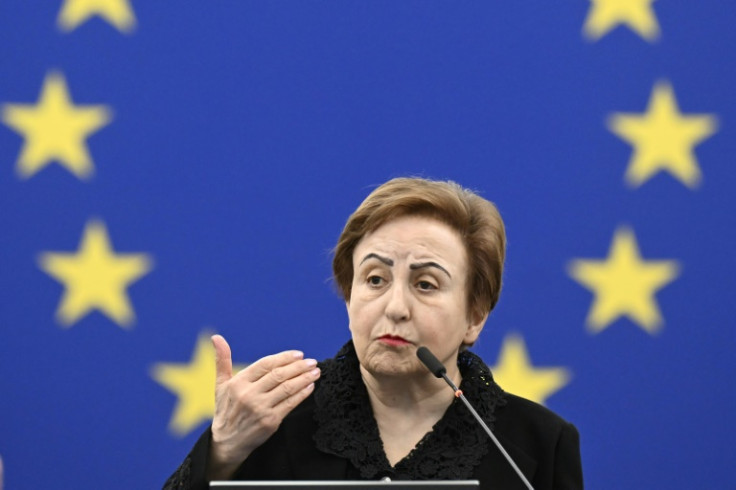Iranian Nobel Winner Urges EU 'Not To Give In' To Iran

Nobel Peace Prize-winning Iranian lawyer Shirin Ebadi on Wednesday urged the EU to maintain pressure on the authorities in Tehran over human rights violations.
"Subordinate aid to Iran, contracts with Iran, and treaties with Iran to respecting international norms, otherwise the money will not benefit the Iranian people at all," the activist said in a speech to the European Parliament.
Ebadi -- who won the Nobel Prize in 2003 and now lives in exile outside Iran -- insisted that "sanctions work" against the authorities in Tehran.
"Do not give in to this regime," she told EU legislators.
The European Union has imposed multiple rounds of sanctions on Iranian officials for their fierce crackdown on protests over the death in custody of 22-year-old Mahsa Amini.
Amini died in custody lin Tehran ast September after being arrested for an alleged violation of Iran's mandatory dress code for women.
The 27-nation European bloc has so far stopped short of formally labelling Iran's Revolutionary Guards a terror group, despite calls to do so from Germany and the Netherlands.
But Ebadi was categorical that "the Revolutionary Guards is a terrorist group".
"Say it officially," she urged the EU.
She said that since the start of the protests over Amini's death "at least 500 people" had been killed and 20,000 imprisoned.
"Don't look away from the immense violations of fundamental rights in Iran," she said.
Her address came on the eve of MEPs voting on a resolution on Iran, in particular on the mystery poisonings of thousands of schoolgirls.
Ebadi shrugged off claims that poverty in Iran was due to sanctions being imposed by the international community on the country.
Instead she pinned the blame on "the misappropriation of funds" and "bad economic policies" by the authorities.
"Democracy is the key to Iran's future, it is the key to peace and stability in the whole region, and it is also in your interest," she argued.
"If democracy comes to Iran, there will be fewer refugees in your country."
© Copyright AFP 2025. All rights reserved.





















